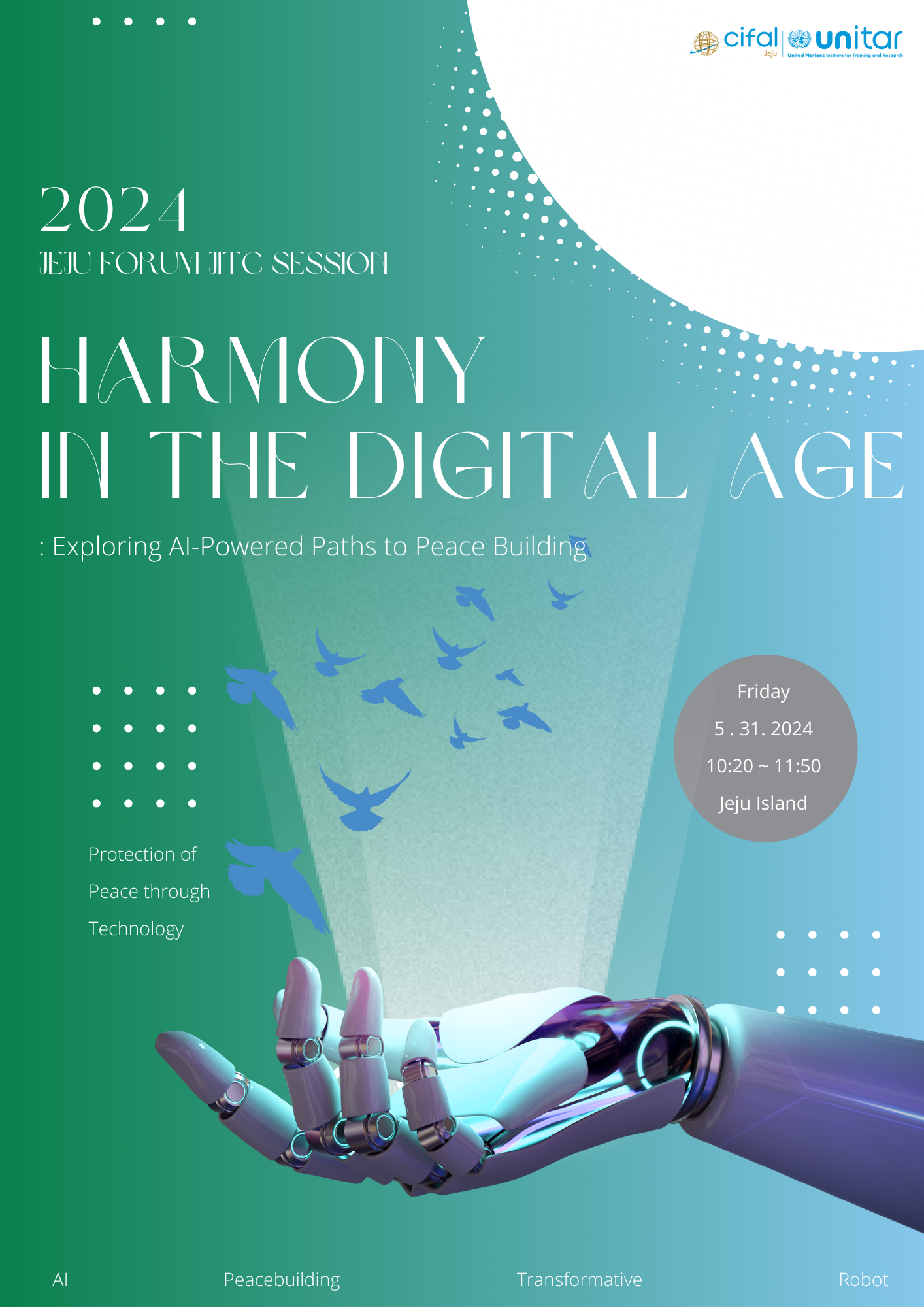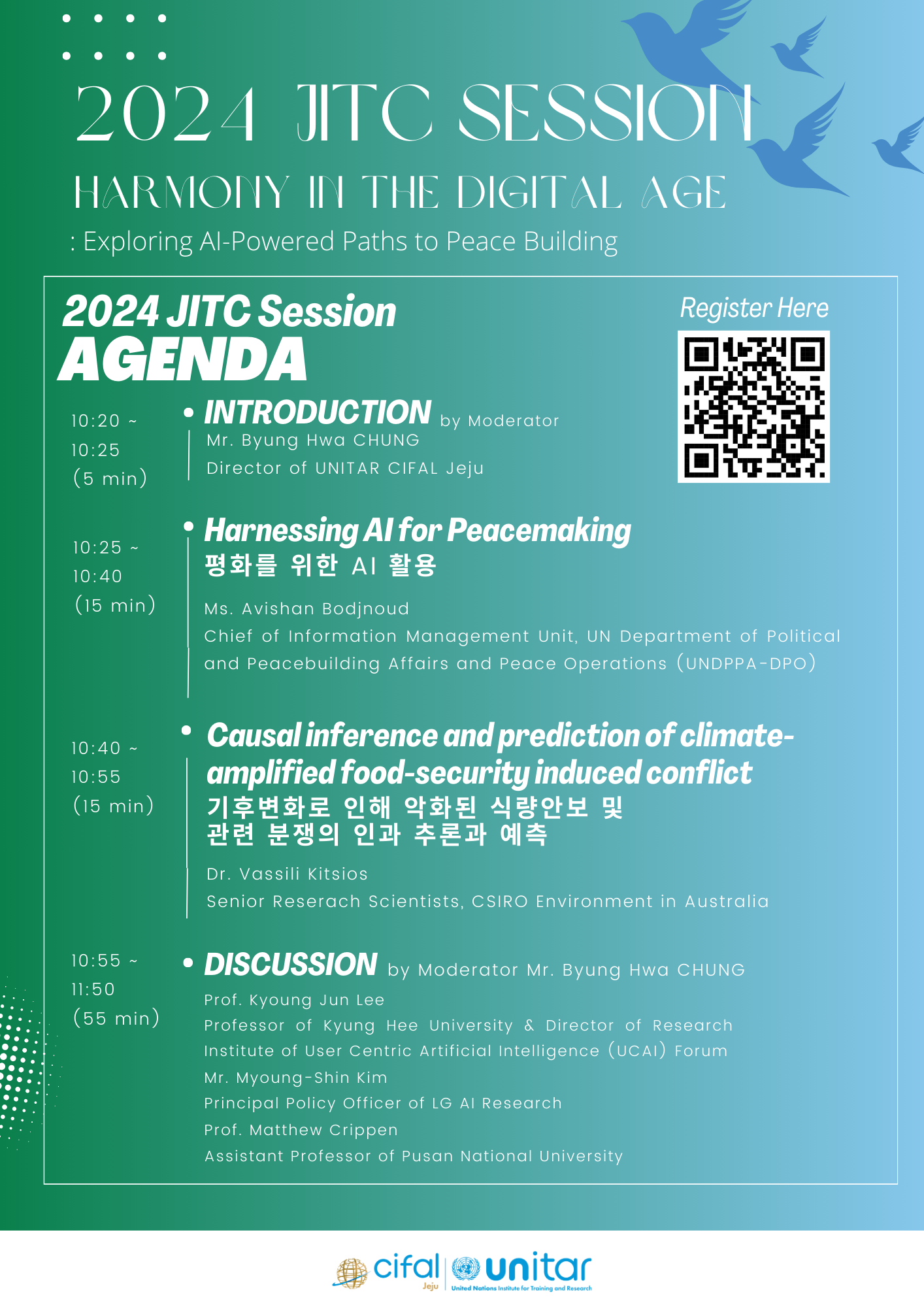|
Harmony in the Digital Age:
Exploring AI-Powered Paths to
Peace Building
31 May
2024
Background
The preceding year, 2023,
stands delineated as a period marked by the escalation of international crises,
notably the protracted conflict in Ukraine spanning almost two years, the
Israel-Hamas war that erupted in October, the Burkina Faso conflict, and the
unrest attributed to armed groups in Nigeria, along with the oppressive regime
prevailing in Myanmar.[1] These
protracted armed conflicts and tensions between nations and non-state entities
have reached a critical juncture, emblematic of a significant international
peace crisis.
Against the backdrop of
these challenges to international security and peace, the 2023 Davos Forum has
judiciously chosen the overarching theme of “Rebuilding Trust” under the
sub-theme of “Achieving Security and Cooperation in a Fractured World.” The Forum
advocates for global leaders to “collaborate and make judicious and resolute
decisions” in order to effectively address the intricate issues arising from a
globally fractured landscape.[2]
Moreover, the forum has introduced
another sub-theme, “Artificial Intelligence as a Driving Force for the Economy
and Society,” accentuating the rapidly expanding scope and influence of
artificial intelligence (AI) on a global scale. It underscores the potential
for innovative problem-solving across diverse sectors, including economics,
industry, education, and environmental considerations, through the strategic
application of AI.
The potential of AI
technology transcends the realm of mere economic and industrial innovation,
extending into the domain of the Sustainable Development Goals (SDGs). Recent
discourse has been actively centered around innovative approaches employing AI
in international peacebuilding efforts. For instance, the United Nations has
effectively employed AI-based algorithm technology to aggregate real-time
feedback from conflict zones and stakeholders, thereby contributing to conflict
resolution efforts grounded in democratic principles. In Yemen, citizens
participated in online hearings through internet platforms, enabling AI
analysis to capture real-time perspectives on conflicts stemming from the
ramifications of the COVID-19 pandemic. In Libya, AI platforms have been
instrumental in gathering opinions on the UN’s proposed interim government, a
decade after the cessation of conflicts in North Africa.[3]
Furthermore, AI
technologies are instrumental in analyzing the frequency of hate speech and
politically charged content on the internet and social media. This analytical
capability aids in predicting regions and vulnerable groups where conflicts are
likely to emerge within the next six months. Various AI technologies, including
mapping services, are being judiciously applied to analyze data pertaining to
disaster and conflict risk factors, thereby facilitating precise delineation of
regions on a map for effective peacebuilding initiatives.
However, apprehensions have
been raised regarding the ethical risks associated with AI technologies,
encompassing advanced information manipulation and the propagations of false
information, potentially leading to the escalation of conflicts. As a measured
response, the sessions at the Jeju Forum this year are poised to meticulously
examine the role of AI technology in international peacebuilding efforts.
Eminent experts in the field will be invited to share pertinent success
stories, fostering a platform for discussions that critically analyze the
ethical risks associated with the deployment of AI technology.
Overview
Event Objectives This Workshop will: ●
Disseminate
pioneering insights regarding the opportunities and obstacles inherent in the
synergy between AI and peacebuilding to delegates from the Asia Pacific region. ●
Offer
a venue to facilitate meaningful dialogue regarding the strategic utilization
of AI within the realm of peacebuilding.
Inquiries
Program1
[1] International Rescue Committee, The top 10 humanitarian crises the
world can’t ignore in 2023, accessed 1 February 2024,
<https://www.rescue.org/eu/article/top-10-humanitarian-crises-world-cant-ignore-2023>.
[2] World Economic Forum, Davos 2024: 4 things to know, accessed 1
February 2024,
<https://www.weforum.org/agenda/2024/01/davos-2024-highlights-ai-growth-climate-security/>.
[3] Dalvin Brown, The Washington Post, The United Nations is turning to
artificial intelligence in
search for peace in war zones, access
1 February 2024, <https://www.washingtonpost.com/technology/2021/04/23/ai-un-peacekeeping/>.
|
||||||||||||||||||||||










